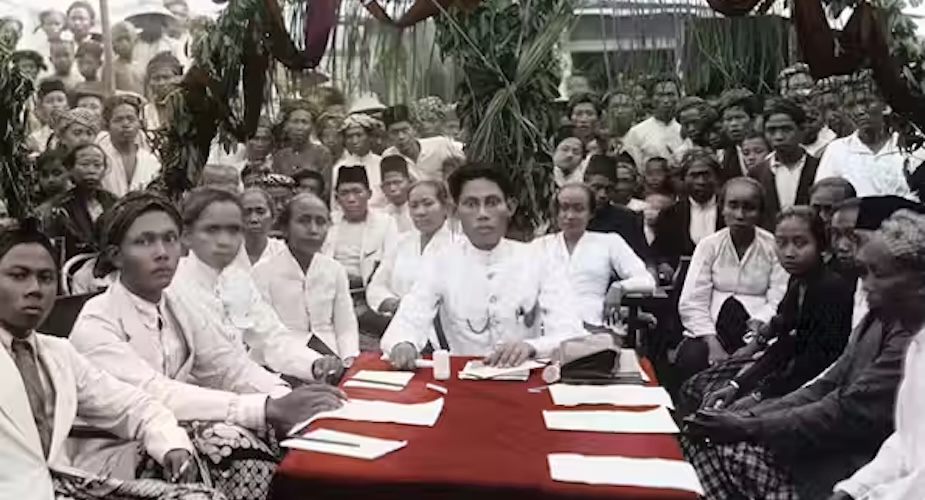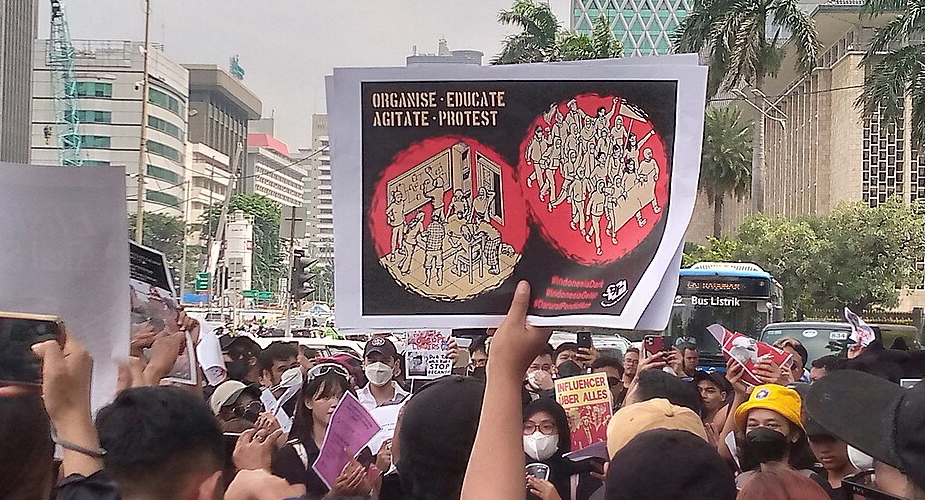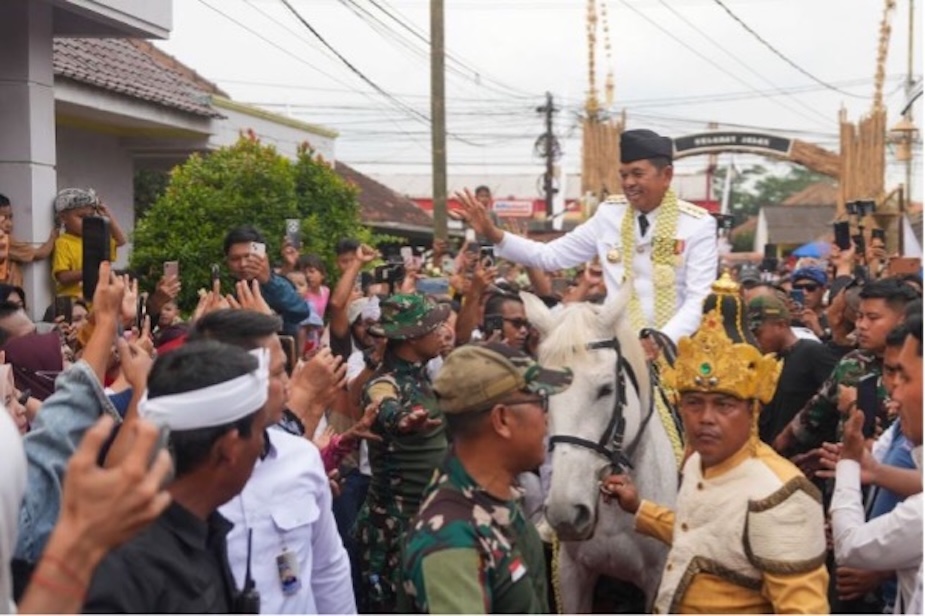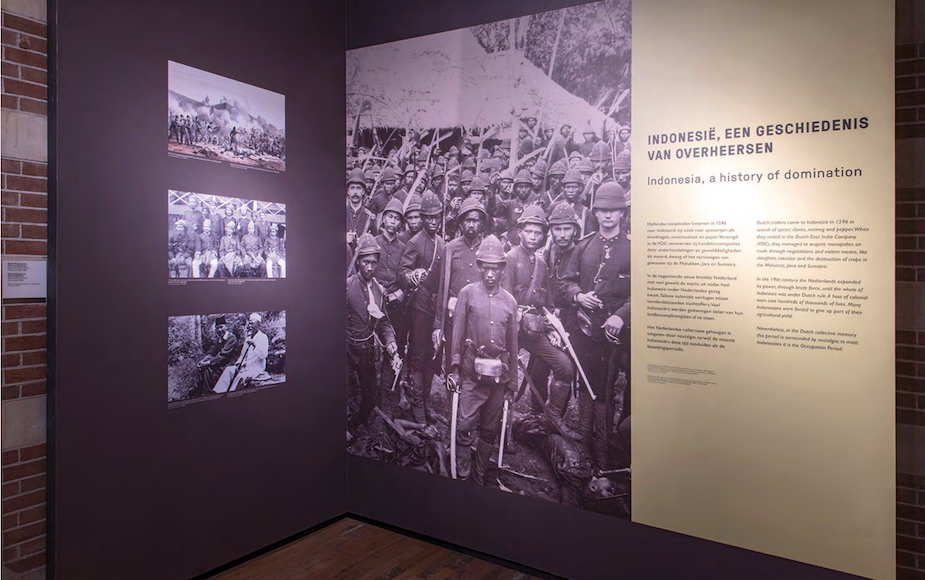Review: A new edited collection examines the challenges still facing Indonesia’s democratic project
Harold Crouch
Twelve years since the fall of the New Order regime Indonesia’s journey to a free democracy is in great part, a success story. This timely new book, based on papers originally presented at the 2009 Indonesia Update conference under the auspices of the Australian National University’s Indonesia project, presented an opportunity for experts with a deep knowledge of Indonesian politics to reflect on the recent general and presidential elections. The focus of their discussion and investigation was related to the larger question of the problems remaining within Indonesia’s democratisation. The contributors to the conference and book – both Indonesian and non-Indonesian - generally appreciate the progress that Indonesia has made in its transition from Suharto’s authoritarian rule, but they are also very aware of what has yet to be achieved. The title of the volume reflects this ambivalence.
Elections and the party system
In assessing the quality of the 2009 elections the two editors describe the elections as ‘competitive but flawed’ while the title of Rizal Sukma’s chapter, ‘Defective System, Resilient Democracy’ points to both shortcomings and achievements. Rizal mentions, among other defects, the absence of millions of voters from electoral rolls, the inclusion of many fictitious voters, and even the irregular inclusion of some members of the armed forces. But he says that the elections ‘were generally agreed to be free and fair’.
These judgements are supported by Adam Schmidt’s chapter which provides a detailed analysis of new electoral laws and the poor performance of the General Elections Commission. ‘Without doubt,’ he says, ‘the quality and credibility of the 2009 general elections fell well short of the standards set by the 1999 and 2004 predecessors’ – which of course also had serious flaws. He concludes that ‘If it had not been for the convincing margin of victory achieved by President Susilo Bambang Yudhoyono and his Democratic Party … the poor management of the elections could easily have become a catalyst for more serious disagreements.’
Whatever the inadequacies of the electoral process, the overall results were broadly in line with the preferences of a large and diverse electorate. Following their studies of the 1999 and 2004 elections, Saiful Mujani and Bill Liddle discuss their survey in 2009 which, they argue, shows that ‘Indonesian voters have become increasingly rational’ in assessing candidates. Of importance for readers who continue to view Indonesia as on the brink of disintegration and chaos, the authors say that ‘most Indonesian voters do not give high priority to the demands of religious and ethnic groups and are therefore not attracted to parties based on religious and ethnic identities’. The authors’ survey demonstrates the importance of the mass media, especially television in shaping voters’ perceptions. Yudhoyono’s ‘likeability’ was a major factor in his success combined with ‘the massive welfare programs implemented and promoted heavily by the government during the previous few years’.
Is this apparently dysfunctional democracy really as bad as it looks?
Saiful and Liddle, however, are concerned about the continuing weakness of political parties and the ‘ineffectual party system’. Dirk Tomsa examines the paradox of the party system apparently becoming stronger while ‘most of the parties that constitute the system have become weaker’. Although the party system appeared to have become more stable, he argues that ‘unless the parties develop stronger organisational roots, the party system will remain volatile’. The core problems of the parties are ‘a lack of organisational coherence and programmatic distinctiveness, repeated involvement in corruption and money politics, and the ever-growing personalisation of politics’ but he also notes that ‘a party system with very weakly institutionalised parties might operate for significant periods of time’.
Personality politics
As political parties increasingly fail to represent voters adequately, party leaders are now relying more on ‘image’ conveyed through the mass media. This has been accompanied, according to Muhammad Qodari, by the rise of a new type of political operator – political consultants – who conduct the polls and focus groups on which parties and candidates increasingly rely in electoral campaigns. Qodari, who is himself a political consultant, argues that the old party machines are now giving way to consultants ‘as the central locomotive of election campaigning’. Increasingly parties no longer nominate loyal party veterans to represent them but turn to candidates identified as ‘electable’ by these political consultants.
Ariel Heryanto, in a stimulating contribution, understands the elections from a cultural perspective. Ariel portrays post-Suharto democratisation as really ‘a new kind of disempowerment – one that is marked by the dominance over the electorate of the entertainment industry and its values’. In response to new electoral rules which made elections more competitive not only between parties but especially between individual candidates, parties increasingly turned toward ‘celebrities’ – actors, singers and even comedians – in place of the party loyalists of the past. Although in fact only 18 such ‘celebrities’ won seats in the DPR, Ariel argues that ‘the emergence of celebrity-driven campaign formats’ did not lead to ‘empowerment but to dispersal and domestication of the masses’. Ariel notes regretfully that ‘the subversive
Political culture
Is this apparently dysfunctional democracy really as bad as it looks? Stephen Sherlock in his study of the parliament accepts the view that ‘the Indonesian parliament’s specific institutional set-up and political culture seem to be particularly supportive of cabalistic or oligarchic control’ yet he also argues that ‘the need to be re-elected and hence to relate to the concerns of the electorate has forced legislators to act in ways that bring important issues to public attention and make the parliament a genuine voice of accountability’. Sherlock’s chapter provides many insights into how the parliament acts, particularly through its out-of-sight committees rather than in visible plenary sessions. His discussion also exposes the ‘open secret that large amounts of money continue to change hands’ although he believes that these practices have declined in recent years.
Another dysfunctional aspect of Indonesian democracy that has been given considerable academic attention is the role of preman (thugs). Ian Wilson was one of the scholars who analysed the emergence of political preman during the early Reformasi period. But in this volume Wilson notes that ‘In contrast to the elections of 1999 and 2004, the legislative and presidential elections of 2009 were marked by a relative absence of overt acts of political thuggery.’ He ascribes this to the ‘increasing institutionalisation of the democratic process’. In contrast to observers who expected that preman organizations would ‘capture’ democratic institutions, Wilson shows that preman groups have, at least to some extent, been absorbed in the democratic process.
There is electoral competition locally but candidates are limited to elites rooted in the New Order
The representation of women in legislatures or local leadership has not been supported in this Indonesian democracy. Despite electoral laws providing quotas for female candidates, Sharon Bessell describes how these provisions were inadvertently eliminated when the Constitutional Court decided that seats would be awarded to individuals rather than parties. Nevertheless, the proportion of women elected to the national parliament, while still low, rose to nearly 18 percent in 2009. Female representation in the national parliament is, however, still far higher than the success rate for women seeking election as heads of regions following the introduction of local direct elections. Only one provincial governor is a woman and only eight heads of some 500 districts and municipalities. Hana Satriyo points out that ‘women have to be well endowed with the usual attributes that contribute to political success for male politicians in regional Indonesia’. Illustrating this, one of the female district heads was unable to complete her term because she was imprisoned for corruption.
In the regions
The final section of the book deals with local democracy. Michael Buehler provides a detailed overview of decentralised regional government. The picture is ‘mixed’, he says. In contrast to the New Order, there is ‘real electoral competition’ but candidates are generally limited ‘to a small group of local elites, most of them rooted in the New Order regime’. Blair Palmer, in his study of the special case of Aceh, shows how a rebel movement that had been fighting for independence for three decades turned itself into a political party and won overwhelming victories in elections for regional heads and legislatures. But the outcome, according to Palmer, has been the entrenchment of ‘patronage-based democracy’ of the type practised in the rest of Indonesia.
Sidney Jones observed the election on the tiny island of Morotai off North Maluku where ‘Voters made their choices based on a vast range of personal and political considerations, defying theoretical models developed by comparative political scientists.’ The exception to this picture of the ‘normalisation of politics’ in regional Indonesia, however, is still Papua. Richard Chauvel concludes that ‘Papua in some ways is caught in a democratic time warp’ where ‘Indonesian security forces exercise a degree of control there that they no longer exercise elsewhere’ and ‘human right abuses remain endemic’.
Overall this book provides an excellent overview and discussion of key issues that have arisen during Indonesia’s transition to a more democratic political format. The analysis found in this book is insightful and informative while the judgements are always reasonable.
Edward Aspinall and Marcus Mietzner (eds), Problems of Democratisation in Indonesia: Elections, Institutions and Society. Institute of Southeast Asia Studies, Singapore: 2010.
Harold Crouch (crouch.harold@gmail.com) is Emeritus Professor Professor in the School of International, Political & Strategic Studies at the Australian National University.












